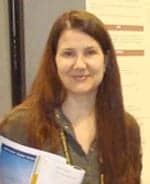
ASCP 2013, themed “Beyond the Lab,” will be held from September 18 to 21 at the Hyatt Regency Chicago.
Follow developments on Twitter, at #ASCP13
The three general sessions are as follows:
PATIENT-CENTERED CARE
Pathology Leadership in the Patient-Centered Era
Wednesday, September 18, from 8 am to 9:30 am
James Crawford, MD, PhD, FASCP, senior vice president of laboratory medicine, North Shore-Long Island Jewish Health System, Manhasset, NY, will moderate the general session focusing on patient-centered care.

Panelist David Nace, MD, is chairman of the board of directors, Patient-Centered Primary Care Collaborative, Washington, DC, the leading national advocacy organization for the patient-centered medical home. He will discuss a national vision for clinical integration, the growing importance of primary care, and the enhancement of the individual patient experience, including his vision for the contribution of the clinical lab to patient-centered care.
APPROPRIATE TEST UTILIZATION / CHOOSING WISELY
Putting Pathology and Laboratory Medicine In The Driver’s Seat for Tomorrow’s Health Care
Thursday, September 19, from 11:15 am to 12:30 pm
Two leading pathologists at the heart of the national appropriate test utilization debate will share their perspectives on ways to reduce medical testing costs.
Elaine Jeter, MD, medical director, Palmetto GBA LLC, one of Medicare’s larger insurance carriers in Columbia, SC, and Gary Procop, MD, FASCP, chairman, Department of Molecular Pathology, Cleveland Clinic, Cleveland, will headline a session moderated by Lee H. Hilborne, MD, MPH, FASCP, DLM(ASCP)CM, medical director, Quest Diagnostics, Southern California, and professor of pathology and lab medicine, University of California, Los Angeles.

(ASCP is a part of the Choosing Wisely campaign. See Hilborne’s article for CLP on this topic here.)
Jeter has been working with Palmetto to craft a reimbursement scheme for molecular testing for the regions of the country that Palmetto services. Procop led the Cleveland Clinic’s successful review process of duplicative testing, now a model for health systems nationwide that demonstrates how a large health system can save money while reducing the
volume of tests performed.
INFORMATICS REVOLUTION
Preparing for Seismic Shifts in Pathology Informatics
Friday, September 20, from 11:15 am to 12:30 pm
This session explores the convergence of technology and health care.
Mark Tuthill, MD, FASCP, division head for Pathology Informatics, Henry Ford Health System, Detroit, and a leader of the Association for Pathology Informatics, will examine how dramatic advances in pathology informatics are transforming personalized medicine and the delivery of patient care.

Panelists include clinical informatics pioneers Bruce Friedman, MD, FASCP, and Ulysses Balis, MD, FASCP, both of the University of Michigan, Ann Arbor, Mich.
Perspectives on the Supreme Court Gene Patent Ruling Wednesday, September 18, from 2 pm to 2:50 pm The lead American Civil Liberties Union (ACLU) lawyer who successfully fought to ensure that human genes could not be patented will discuss the recent Supreme Court ruling and the far-reaching implications for pathology, lab medicine, and patient care. |
[Source: ASCP]



